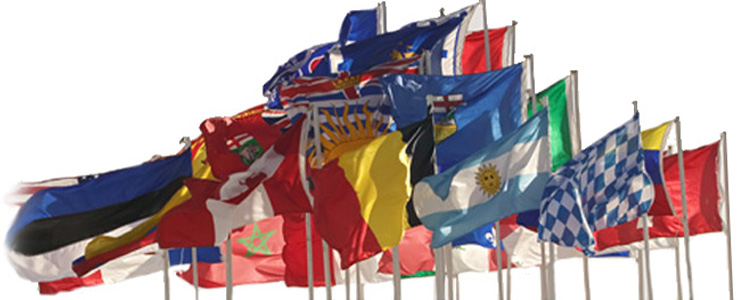
There are many advantages to utilizing a multilingual translation service over trying to have translations performed internally, utilizing in-house staff, affiliates, or distributors. Many times manufacturers look solely at the cost of the translation and do not consider other important time and quality factors which will end up burdening them more in the long run. Ignoring these factors can result in additional and unnecessary cost, longer project lead times, and additional liability. Strategically partnering with an expert translation provider will pay dividends in the long run.
Advantages Working with a Multilingual Translation Service Partner Will be Recognized in the Following Areas:
Linguists
- Linguists will be certified translators residing and working within the region of the word where their language expertise lies (i.e. German translators will live in Germany). This ensures that regional dialects, colloquialisms, and preferred uses of terminology are adhered to.
- Linguists will be subject matter experts. This means that, for example, medical translators will have experience working within the medical industry and understand medical terminology in all languages they handle.
Industry Experience / Industry Certification
- Your multilingual translation partner should have experience working within a given industry beyond the expertise of their linguists. Project managers, customer service executives, account executives, quality assurance managers are required to understand the client needs as they relate to their industry. This ensures that logistics of each translation project are handled accurately and efficiently.
- Industry experience creates a cooperative environment and helps to serve as a double check to the scope of each project from an industry requirement perspective as well and a translation perspective. For example, an experienced medical translation company will draw from their industry experience and experience working with their current clients to help new clients. Many times new medical device clients will not know what types of files (documentation, software, etc.) need to be translated or what the language requirements of a particular country might be. Although an experienced medical translation company might not be able to provide “official guidance”, they can certainly consult the client unofficially, pointing them in the right direction, and speeding up the clients’ overall process.
- Your translation partner will be certified to specific and non-specific industry standards. All translation providers should be certified to ISO 9001 in order to govern their quality assurance processes. Translation providers who translate into European languages should be certified to ISO 17100, a standard specific to how the translation process is performed and managed. It covers all aspects of the translation process and defines basic parameters for a quality translation process. In addition, medical device translation companies should be certified to ISO 13485 which “facilitates harmonized medical device regulatory requirements for quality management systems” (www.iso.org – ISO 13485:2003 Medical devices — Quality management systems -Requirements for regulatory purposes)
- Your translation partner should disclose, and provide certificates, as to which facilities are ISO certified for both ISO 9001 and ISO 13485. Projects managed out of a facility that is not ISO certified could negatively impact a third party audit.
- Your translation partner should issue a certificate of conformity which speaks to the accuracy of the translation and that it was performed within ISO certified processes.
Access to Translation Specific Tools and Technology
- Your multilingual translation provider should utilize industry leading tools to build, use and manage translation memories on a per-language basis. Translation memory ensures linguistic consistency and maximizes cost benefits. You, the client, should be the owner of any and all translation memory and should be provided to you, by your translation partner, at your request.
- Your translation partner will accept and utilize your glossaries of commonly used terms to ensure your specific industry terminology is translated consistently and to your preferences.
Organized Resources with Multiple Service Offerings
- Your translation partner should offer a suite of services including Translation, Typesetting, Desktop Publishing (DTP), In Country Review, Back Translation, and more- a one-stop-shop for all your translation needs.
- Your translation partner will have a process (ISO and EN certified as discussed preciously) which is managed and organized by a dedicated project manager. The project manager manages all the moving parts of each project, ensuring compliance with the certified processes and accurate and timely delivery of the finished product. He or she serves as a point of contact for the client to meet expectation prior to, during, and after the project is complete.
Leave a Reply